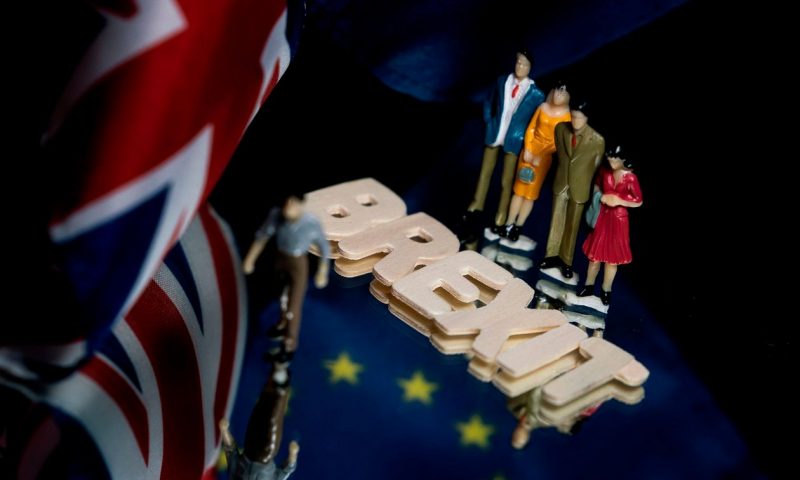The pound dipped slightly but remained up for the day on Thursday as the U.K. and EU finally struck a Brexit trade deal.
After months of protracted negotiations and several missed deadlines negotiators on both sides reached agreement on Thursday afternoon.
Sterling GBPUSD, 0.11%, which had rallied in early trading to hit $1.36, fell slightly to $1.3525 shortly after the deal was struck.
The agreement, which still need to be ratified by Dec.31, was announced after negotiators reportedly worked through the night to iron out the deal and finally resolve their difference over fishing rights.
“We have signed the first free trade agreement based on zero tariffs and zero quotas that has ever been achieved with the EU. The deal is the biggest bilateral trade deal signed by either side, covering trade worth £668bn in 2019,” the U.K. government said in a statement.
European Commission President Ursula von der Leyen said the deal was “fair, balanced and right.”
“The negotiations were very difficult. A lot was at stake for so many people, so this was an agreement that we absolutely had to fight for,” she said in a news conference.
European stocks failed to significantly build on Wednesday’s gains in Thursday’s abbreviated session but the prospect of an agreement brought a sense of relief to markets ahead of Christmas.
The pan-European Stoxx 600 SXXP, +0.12% was 0.2% up, while the French CAC PX1, -0.10% edged 0.1% lower and the U.K.’s FTSE 100 UKX, +0.10% was 0.1% up at the end of a shortened trading day. The domestically-exposed FTSE 250 was the top performer, rising 1.2%, as U.K.-focused stocks enjoyed gains on hopes for a Brexit deal. The German DAX DAX, +1.26% was closed for the holidays. U.S. stocks inched higher in early trading as investors remained unclear on the status of the $900 billion coronavirus aid bill following President Donald Trump’s calls for changes to be made.
Asian stocks were broadly higher but fell in Shanghai after China’s market regulator launched an anti-monopoly investigation of e-commerce giant Alibaba Group BABA, -13.34%.
Despite the pre-Christmas positivity, the threat of COVID-19 still loomed large across Europe with cases rising. The U.K. announced that more regions would enter the toughest Tier 4 level of restrictions on Saturday as the country battles to contain a new strain of the virus, said to be 70% more contagious. The country’s health minister, Matt Hancock, also revealed that a second new strain had been detected, from South Africa. “This new variant is highly concerning because it is yet more transmissible and it appears to have mutated further than the new variant discovered in the U.K.,” he said on Wednesday.
Anheuser-Busch InBev’s stock ABI, -0.50% fell 0.5% as a consortium led by Apollo Global agreed to buy a 49.9% stake in the Budweiser brewer’s U.S.-based metal container plants in a deal worth $3 billion.
British banks were among the FTSE 100’s biggest risers as investors cheered the certainty that a Brexit trade deal would provide. Lloyds Banking Group LLOY, +3.99% climbed 4% and Barclays BARC, +1.83% rose 1.8%.

